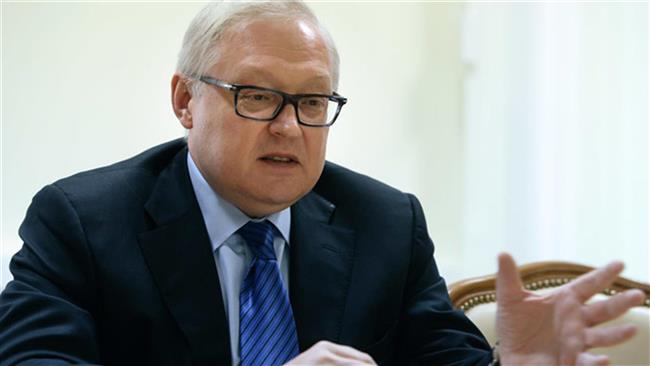TEHRAN, April 22, YJC - Russian Deputy Foreign Minister says Moscow is against Washington's “non-productive” attempts to unite in one agenda Iran's non-nuclear issues and those pertaining to the implementation of the country's nuclear agreement.
TEHRAN, Young Journalists Club (YJC)- Russian Deputy Foreign Minister Sergei Ryabkov says Moscow is against Washington's "non-productive” attempts to unite in one agenda Iran's non-nuclear issues and those pertaining to the implementation of the country's nuclear agreement.
He criticized US financial regulators that create obstacles for business projects as the country’s business and state structures "have some suspicions that these projects and this work may be related to the Iran nuclear program.”
Ryabkov said Moscow "will oppose" Washington’s "non-productive path” to "unite in one agenda not only the issues regarding the implementation of the Joint Comprehensive Plan of Action (JCPOA), but a whole range of claims to Tehran not related to the nuclear affairs.”
The senior Russian diplomat emphasized that his country "has been consistently working to enhance" the implementation of the landmark nuclear deal, known as the JCPOA.
Ryabkov further pointed to US President Donald Trump’s decision to review the JCPOA and expressed hope that Washington would realize that the nuclear deal is viable after reviewing it.
"We took note of information from Washington that an additional analysis of agreements with Iran on its nuclear program is beginning there,” he said.
"We would like to hope that this analysis will confirm that this agreement is viable and useful for enhancing international peace and regional stability,” the Russian diplomat added.
The US Department of State said on April 18 that President Trump "has directed a National Security Council-led interagency review” of the JCPOA that "will evaluate whether suspension of sanctions related to Iran pursuant to the JCPOA is vital to the national security interests of the United States.”
Iran and the five permanent members of the United Nations Security Council - the United States, France, Britain, Russia and China plus Germany - signed the JCPOA on July 14, 2015 and started implementing it on January 16, 2016.
Under the JCPOA, Iran undertook to put limitations on its nuclear program in exchange for the removal of nuclear-related sanctions imposed against the country.
The lifting of sanctions against Iran has opened the way for a renewal of broader relations between the Islamic Republic and the European Union.
Source: Press TV
